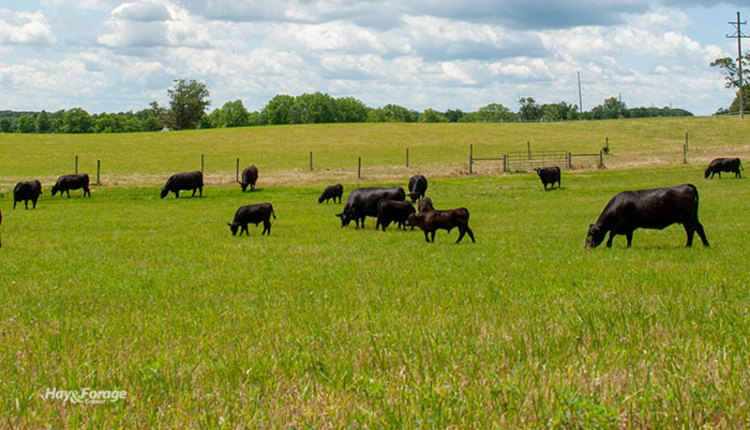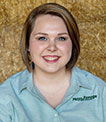
Warm, sunny days after a long dose of winter weather can make it tempting to turn cattle out on the greening new grass. However, cattle turned out too early in the spring can lead to several issues.
“The problem that we can run into is that there simply is not enough forage available, and the forage that is available tends to be high in moisture,” says Katie VanValin, University of Kentucky Extension beef specialist.
If cows are turned out too early, they expend more energy grazing short forage that is mostly water. In such situations, cows may easily slip into an energy deficit. This is especially detrimental for spring-calving cows that are transitioning from late gestation to lactation, which represents the time when a cow’s maintenance nutrient requirements are at their highest.
When an energy deficit situation occurs, cows will begin to lose weight and body condition score (BCS) points if not supplemented with feed or hay.
“If cows lose condition during early lactation, it is often difficult to recover that condition prior to breeding,” explains VanValin.
To ensure efficient herd reproductive performance at breeding, maintain a cow BCS of 5 to 6. Cows that have a hard time gaining and keeping weight on should be separated from the group to allow for additional feed availability without overfeeding the rest of the herd.
“Evaluate the forages in your pasture and let grass growth dictate when cows are turned out as opposed to a date on the calendar,” VanValin says. Turning cows out too early causes stress on forage stands; this can create opportunities for weed encroachment and reduce stand vigor.
“The bottom line is don’t let spring fever set in too early by turning cows onto fresh grass that may not meet all of the nutritional demands of the herd,” VanValin concludes. “Continue to evaluate body condition score in the herd and allow this to guide nutrition and management decisions as Mother Nature transitions from winter to spring, and as cows transition from gestation to lactation.”

C.J. Weddle served as the 2020 Hay & Forage Grower editorial intern. She currently attends Mississippi State University, majoring in agricultural education, leadership, and communications. She grew up on a farm in Vardaman, Miss., where her family raises sweet potatoes and soybeans.

